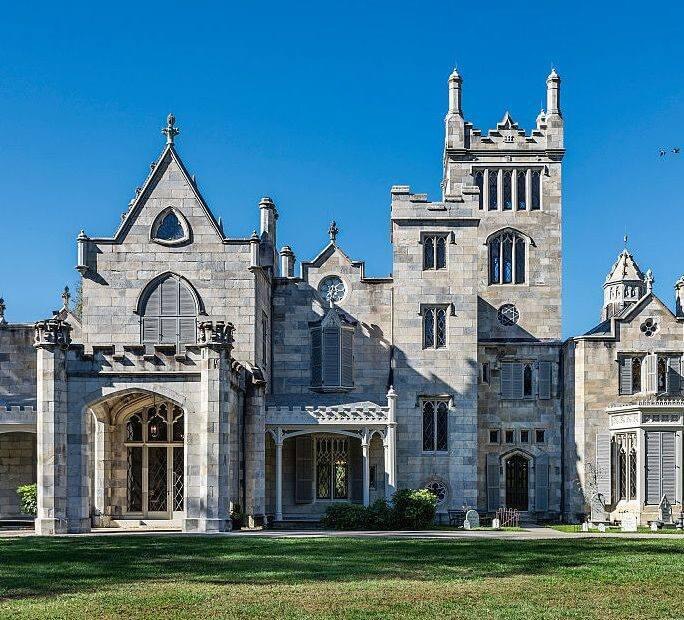This is the Henry P. Kent House at 264 South Main Street in Suffield, Connecticut.

The Henry P. Kent House is a historic residence located at 264 South Main Street in Suffield, Connecticut. Here are some details about its architectural style and historical significance:
Architectural Style
Victorian Era: The house is an example of Victorian architecture, a style that was popular in the United States during the late 19th century. This style is often characterized by ornate detailing, asymmetrical facades, and a variety of textures and materials.
Features: The house likely features common Victorian elements such as a steeply pitched roof, decorative trim, bay windows, and possibly a large front porch.
Henry P. Kent: Henry P. Kent was a notable figure in the local community, and the house likely reflects his status and the period’s architectural preferences.
Local Heritage: The house contributes to the historical fabric of Suffield, a town with a rich history dating back to its settlement in the 17th century.
Preservation
Historic Preservation: Buildings like the Henry P. Kent House are often preserved due to their architectural and historical importance, contributing to our understanding of local and national history.
Context: The house is part of a broader historical context in Suffield, which features other significant buildings and sites. The town itself has a history of agricultural and industrial development, influencing the types of residences and buildings constructed.
If you need more detailed information or specifics about the house, such as its construction date, original owners, or any architectural renovations, local historical societies or archives might have extensive records. You can also explore historical databases or contact the Suffield Historical Society for more in-depth research.

Henry P. Kent: Henry P. Kent was a prominent figure in Suffield during the late 19th and early 20th centuries. His influence and status in the community are reflected in the grandeur and style of his residence. Research into local archives or historical records might reveal more about his contributions to the town and his personal history.
Construction and Ownership: Understanding when the house was built and who the subsequent owners were can provide insights into the changes and developments the house has undergone over the years.
Architectural Significance
Design Elements: The Victorian architectural style often includes intricate woodwork, stained glass windows, and decorative gables. Specific elements of the Henry P. Kent House, such as unique carvings, original interior designs, and period-specific furnishings, can further highlight its architectural importance.
Architect: Identifying the architect responsible for the design of the house can add depth to its architectural history. Architects of the Victorian era often left a distinct mark on their buildings, and knowing the architect can provide context to the stylistic choices made.
Suffield’s Historical Context
Town History: Suffield, Connecticut, was settled in the 17th century and has a rich history that includes agricultural prosperity and industrial growth. The town’s development influenced the types of buildings constructed and the architectural styles prevalent during different periods.
Other Historic Buildings: Comparing the Henry P. Kent House to other historic buildings in Suffield can provide a broader understanding of the town’s architectural landscape. This comparison can highlight common features and unique aspects of the house.
Historic Designation: If the Henry P. Kent House is listed on the National Register of Historic Places or designated as a local historic landmark, this status can provide information on its significance and the efforts made to preserve it.


